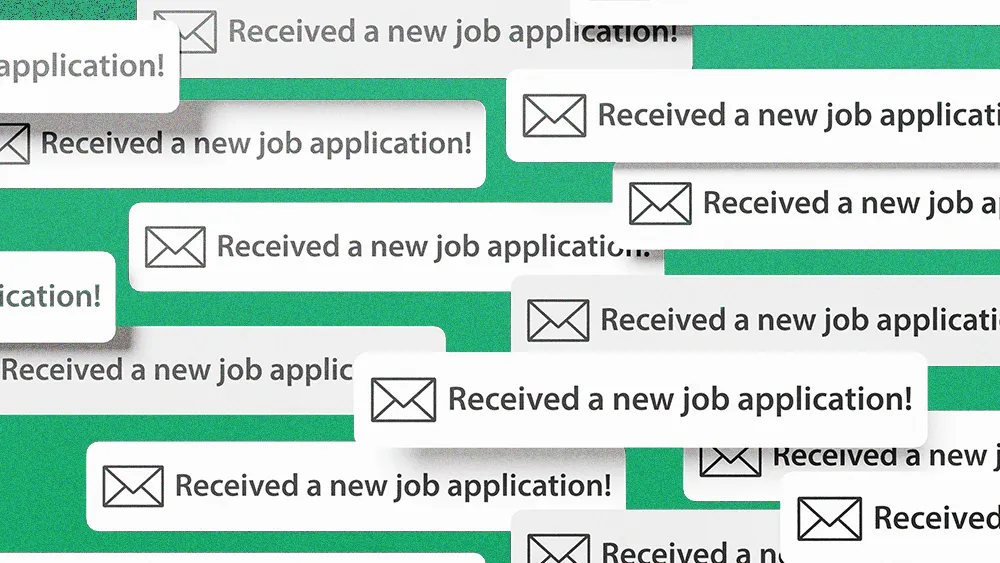Gallup Poll shows morale crisis as manager engagement plummets

Key Points
A Gallup poll finds global employee engagement dropped in 2024, costing the world economy $438 billion in lost productivity, according to Gallup research.
Manager engagement has fallen, impacting team performance and overall business outcomes.
We stand at the edge of a new era of work. With thoughtful leadership and strong, empowered managers, AI can elevate human potential rather than diminish it.

Jon Clifton
CEO
Gallup
The global workforce is grappling with a deepening crisis of morale and productivity, according to Gallup’s latest findings. Employee engagement has plummeted to levels not seen since the pandemic’s peak, erasing billions in productivity potential.
The decline is largely fueled by a crisis among managers, whose own engagement and wellbeing are suffering significantly. Compounding the issue, particularly in the U.S., workers report high stress and a strong desire to leave their jobs, even amidst relatively high regional engagement scores.
Engagement hits post-pandemic low: Global employee engagement fell from 23% in 2023 to 21% in 2024, a drop matching the decline seen during the 2020 COVID-19 lockdowns, according to the State of the Global Workplace: 2025 Report. Gallup estimates this two-point slide cost the world economy $438 billion in lost productivity last year. While engagement among individual contributors held steady at 18%, the overall drop signals a worrying trend for global business performance.
Manager malaise drives decline: The primary driver behind the slump was a drop in manager engagement. This decline was particularly sharp among managers under 35 and female managers. Gallup notes that managers influence roughly 70% of the variance in their team’s engagement, making their disengagement a critical issue. The report warns, “Business performance—and ultimately GDP growth—is at risk if executive leaders do not address manager breakdown.”
Wellbeing and stress take a toll: Alongside falling engagement, overall employee wellbeing, measured by Gallup’s ‘thriving’ metric, also dipped globally to 33%. Managers again saw significant drops, with older managers’ wellbeing falling five points and female managers’ seven points. Stress levels remain high, with 40% of the global workforce reporting feeling stress “a lot of yesterday.”
In the U.S. and Canada, this figure jumps to 50%, the highest globally, despite the region boasting relatively high engagement and thriving scores. Gallup suggests a link: “When we consider the decline in both manager life evaluations and employee engagement, a deteriorating workplace environment is the common denominator.”
Job market paradox: Despite the workplace malaise, 51% of workers globally still believe it’s a good time to find a job. However, mirroring the high stress levels in North America, 50% of workers globally are either watching for, or actively seeking, new employment opportunities. This presents a retention challenge for employers already grappling with disengagement. In India, the situation appears particularly acute, with nearly half of employees reportedly wanting to switch jobs amid high levels of daily stress, anger, and loneliness.
Training seen as key fix: Gallup identifies a lack of manager preparation as a major contributing factor, finding that only 44% of managers worldwide report having received any management training. The report suggests that even basic training can cut active disengagement among managers by half, and providing ongoing development opportunities can lift manager ‘thriving’ levels, potentially reaching 50% when combined with training and active encouragement from the organization.
A $9.6T challenge: Gallup CEO Jon Clifton stated in the report’s foreword, “We stand at the edge of a new era of work. With thoughtful leadership and strong, empowered managers, AI can elevate human potential rather than diminish it.” The potential upside is substantial: Gallup calculates that if organizations worldwide could match its “exceptional workplace” benchmark of roughly 70% engagement, it could unlock US $9.6 trillion in productivity, equivalent to about 9% of global GDP.
Related articles
TL;DR
A Gallup poll finds global employee engagement dropped in 2024, costing the world economy $438 billion in lost productivity, according to Gallup research.
Manager engagement has fallen, impacting team performance and overall business outcomes.

Jon Clifton
Gallup
CEO

CEO
The global workforce is grappling with a deepening crisis of morale and productivity, according to Gallup’s latest findings. Employee engagement has plummeted to levels not seen since the pandemic’s peak, erasing billions in productivity potential.
The decline is largely fueled by a crisis among managers, whose own engagement and wellbeing are suffering significantly. Compounding the issue, particularly in the U.S., workers report high stress and a strong desire to leave their jobs, even amidst relatively high regional engagement scores.
Engagement hits post-pandemic low: Global employee engagement fell from 23% in 2023 to 21% in 2024, a drop matching the decline seen during the 2020 COVID-19 lockdowns, according to the State of the Global Workplace: 2025 Report. Gallup estimates this two-point slide cost the world economy $438 billion in lost productivity last year. While engagement among individual contributors held steady at 18%, the overall drop signals a worrying trend for global business performance.
Manager malaise drives decline: The primary driver behind the slump was a drop in manager engagement. This decline was particularly sharp among managers under 35 and female managers. Gallup notes that managers influence roughly 70% of the variance in their team’s engagement, making their disengagement a critical issue. The report warns, “Business performance—and ultimately GDP growth—is at risk if executive leaders do not address manager breakdown.”
Wellbeing and stress take a toll: Alongside falling engagement, overall employee wellbeing, measured by Gallup’s ‘thriving’ metric, also dipped globally to 33%. Managers again saw significant drops, with older managers’ wellbeing falling five points and female managers’ seven points. Stress levels remain high, with 40% of the global workforce reporting feeling stress “a lot of yesterday.”
In the U.S. and Canada, this figure jumps to 50%, the highest globally, despite the region boasting relatively high engagement and thriving scores. Gallup suggests a link: “When we consider the decline in both manager life evaluations and employee engagement, a deteriorating workplace environment is the common denominator.”
Job market paradox: Despite the workplace malaise, 51% of workers globally still believe it’s a good time to find a job. However, mirroring the high stress levels in North America, 50% of workers globally are either watching for, or actively seeking, new employment opportunities. This presents a retention challenge for employers already grappling with disengagement. In India, the situation appears particularly acute, with nearly half of employees reportedly wanting to switch jobs amid high levels of daily stress, anger, and loneliness.
Training seen as key fix: Gallup identifies a lack of manager preparation as a major contributing factor, finding that only 44% of managers worldwide report having received any management training. The report suggests that even basic training can cut active disengagement among managers by half, and providing ongoing development opportunities can lift manager ‘thriving’ levels, potentially reaching 50% when combined with training and active encouragement from the organization.
A $9.6T challenge: Gallup CEO Jon Clifton stated in the report’s foreword, “We stand at the edge of a new era of work. With thoughtful leadership and strong, empowered managers, AI can elevate human potential rather than diminish it.” The potential upside is substantial: Gallup calculates that if organizations worldwide could match its “exceptional workplace” benchmark of roughly 70% engagement, it could unlock US $9.6 trillion in productivity, equivalent to about 9% of global GDP.




